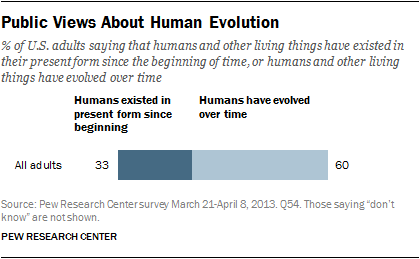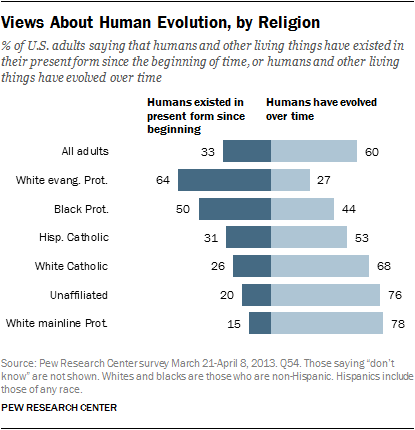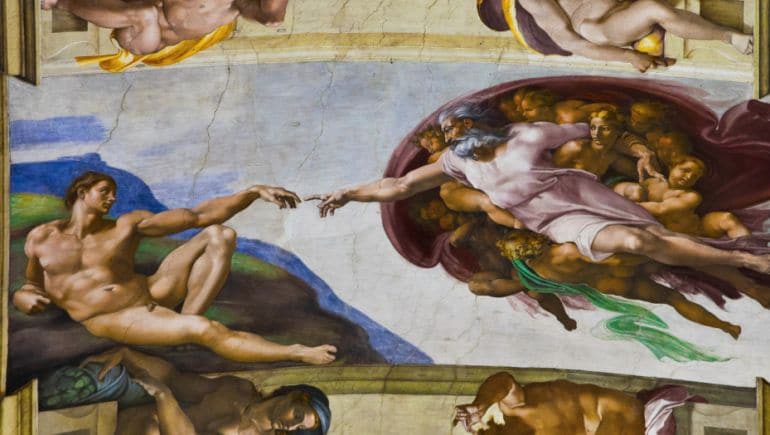Epigraph
Oh Prophet, when your Lord took out the offspring from the loins of the Children of Adam and made them bear witness about themselves, He said, ‘Am I not your Lord?’ and they replied, ‘Yes, we bear witness.’ So you cannot say on the Day of Resurrection, ‘We were not aware of this.’ (Al Quran 7:172)
…
Collected by Zia H Shah, Chief Editor of the Muslim Times
Dr. Yasir Qadhi is no hero of mine. I strongly disagree with his scientific stance about evolution and Jinns and his religious tolerance stance about other faiths and sects of Islam. Having said that I completely agree with his presentation about the Primordial Covenant above.
This is how I understand the Quran teaches us about our academic and real life adversaries:
And let not the adversity of a people, that they hindered you from the Sacred Mosque, incite you to transgress. And help one another in righteousness and piety; but help not one another in sin and transgression. And fear Allah; surely, Allah is severe in punishment. (Al Quran 5:2)
Below is the commentary of the above verse by Seyyed Hossein Nasr et al. This is a recently published multiauthor commentary, published in USA, which has incorporated more than 40 traditional Islamic commentaries and has chosen one or two alphabets to reference them. I am going to divide Nasr’s commentary into four parts.
The first part brings out those traditional commentators that interpret the verse literally and suggest a literal meeting:
This verse is in many ways the cornerstone of Islamic sacred history and anthropology and establishes that the fundamental relationship between God and all human beings is premised upon the simple, unmediated recognition of His Lordship at the moment of their pretemporal creation (see the essay “The Quranic View of Sacred History and Other Religions”). The event recounted in this verse is widely referred to as a pretemporal covenant (mīthāq) or pact (ʿahd)—although these terms do not appear in the verse itself—made by God with all of humanity prior to their earthly existence (Aj, R, Ṭ). It is connected by commentators with a pretemporal covenant between God and the prophets (3:81; 33:7) and considered by some to be subsequent to it (ST). The Quran mentions covenants or pacts between God and the believers generally (5:1, 7; 6:152; 13:20, 25; 16:91, 95; 57:8) as well as covenants with Abraham (2:124–25), the Israelites (2:40, 63, 83–84, 93; 4:154; 5:70), the Christians (5:14), and the People of the Book collectively (3:187). But the making of the covenant described in the present verse is unmediated and universal—contracted directly between God and all humanity—and can thus be interpreted as the basis of all later and specific covenants mediated by the prophets. This verse is also connected with the Quranic notion of the fiṭrah (IK, Ṭ), the primordial nature (30:30) with which all human beings were originally endowed, indicating that the innate recognition of God’s Oneness constitutes the essence of being human (see 30:30c). Even though human beings do not remember the pretemporal covenant, their testimony to God’s Lordship is understood to have left an indelible imprint upon their souls and to have established moral responsibility for them (Q). When these souls are engendered in earthly bodies and reach the age of moral understanding and accountability, the innate knowledge is reawakened in those who believe by their encounter with prophetic teachings, scriptures, and Divine laws, which serve as a reminder and renewal of their initial covenant with God (Aj). Therefore, if a child dies before reaching the age of moral and religious responsibility, he or she is considered to have died according to the first covenant (mīthāq) and the original fiṭrah, and so in a state of moral purity. However, for those who fail to affirm the original covenant by rejecting the later covenant—that is, by denying the messages brought to them by their prophets and scriptures—their initial covenant will not benefit them (IK, Q, Ṭ, Ṭs). Some describe this pretemporal event as one in which God brought forth all the progeny of Adam from his loins, specifically; some argue that this was done immediately after God had blown His Spirit into Adam (15:29; 32:9; 38:72; Ṭ), and others debate whether it occurred before or after his fall to earth (Mw, Q).
The second part brings out some difficulties or contradictions in a literal understanding and suggests a metaphorical interpretation:
Many observe, however, that God takes the progeny not from Adam, but from the Children of Adam and from their loins (plural; IK, R, Ṭ), indicating simply that He brought forth all future generations that have appeared and will appear until the end of time (Mw). Progeny translates dhurriyah (or in some readings, the plural dhurriyāt), which derives from a root that in its most literal sense denotes small particles, atoms, or seeds that are scattered, but also connotes ‘progeny’ or ‘offspring’ in over a dozen Quranic verses (e.g., 2:124; 3:34; 4:9). Some commentators indicate that the progeny were drawn forth in the form of ‘particles’ or ‘seeds’ (dharr; IK, R, Ṭ), suggesting the physically unformed state of the children of Adam during this encounter. But some questioned how it was possible for the progeny as ‘particles’ to hear and respond to God’s question; and because the intellect was not considered to manifest itself in human beings until years after birth, they also questioned how these ‘particles’ knew what they were saying or could be held accountable for it (R). Given these issues, some commentators consider this verse a symbolic description of an innate covenant (Z) or a symbolic description of the temporal process by which human beings realize Divine Oneness—arguing that as individuals grow in intellect and contemplate the world around them, the existence of a single God becomes innately clear to them, and they witness to this truth inwardly (Q, R, Ṭs, Ṭū), since they bear this knowledge already in their primordial nature.
The third part reasserts the literal interpretation, while bringing out other details suggested by Rumi and others:
Others, however, reject this interpretation as against the plain meaning of the text and argue that God temporarily bestowed faculties of intellect, hearing, and speech on the ‘particles,’ or human ‘seed,’ just as He did when He caused the heavens and the earth to respond to Him (41:11; R, Ṭ); see also 41:21, where God endows bodily organs and faculties with the ability to testify. God causes the Children of Adam to bear witness concerning themselves, or ‘against themselves.’ The Quran mentions human beings bearing witness against themselves, in both this world and the Hereafter, through their deeds and their very bodies (cf. 6:130; 7:37; 24:24; 36:65; 41:20–22). In the present verse, their witnessing takes the form of a response to God’s question Am I not your Lord? (A-lastu bi-rabbikum?), understood to be a declarative statement in the form of a question, requiring the hearers to bear witness to its truth. Poetically, some Muslim authors, such as Rūmī, have described the event in this verse as the ‘Day of Alast,’ referring to the first part of the question Am I not your Lord?; ‘Day of Alast’ therefore refers in Islamic thought to a day beyond all days reckoned in time. Their response is Yea (balā, a classical affirmative connoting certainty), we bear witness. Some reports consider we bear witness to have been spoken by other witnesses to their testimony—identified variously as the angels, Adam, the heavens and the earth, or God Himself (IJ, IK, Q, R, Ṭ)—although most consider this a less likely reading. The verse ends by explaining that the purpose of this questioning and witnessing was so that human beings could not come on the Day of Resurrection claiming to have been unaware of God’s Lordship or their duty to worship Him. One may question how one can be responsible, during earthly life, for a testimony one cannot remember having made prior to coming into this world (R). Some commentators have argued that it is precisely this human inability to remember the event described in this verse that points to its symbolic nature and thus reject the idea that a pretemporal covenant, of which most human beings are not conscious and that they cannot recall, could be the basis of a responsibility that is binding upon them (R). When this verse is read in the wider Quranic context and juxtaposed with Quranic prophetic history, however, this pretemporal recognition of God’s Lordship can be understood as creating an innate disposition in human beings toward recognizing and worshipping God during earthly life and toward accepting the prophets and the messages they bring as ‘reminders’ of what human beings already know inwardly, but have merely forgotten. Those who reject the prophets, therefore, are considered willfully ignorant, denying truths that should, in any sincere and morally uncorrupted soul, resonate with a deep but forgotten knowledge of God that nevertheless still exists within them. In this sense, those who deny and reject the prophetic messages sent to them are described as kuffār, a word most commonly translated ‘disbelievers,’ but whose etymological meaning signifies the ‘covering over’ of something, which in the religious sense refers to covering over the innate awareness of the truth of God’s Lordship and Oneness that they bear within themselves. The pretemporal covenant, then, in conjunction with God’s sending of messengers to all people serves as a ‘proof’ against the disbelievers who capriciously or cynically deny prophetic messages that they know deep within themselves to be true.
In the fourth part discussion incorporates predestination and status of leaders in Shiite and sufi tradition:
This verse is also the basis for more elaborate narrations, some of which are attributed to the Prophet, that connect the pretemporal covenant with predestinarian notions. Although the literal reading of this verse suggests that all human beings have made the same covenant recognizing God’s Lordship and therefore have the same possibility for realizing it in earthly life, several reports suggest that human moral destiny is linked to distinctions made among the covenanters on the occasion of this pretemporal covenant. Some reports assert that God removed some progeny from the right side of Adam or with His Right Hand, and these human beings were destined for the Garden, while others were removed from Adam’s left side or with God’s other Hand and were thus destined for Hell (Q, Ṭ). Still other reports indicate that some covenanters bore witness only reluctantly or deceptively (IJ, Qm, ST, Ṭ), although this interpretation is rejected by other authorities. Some early Twelver Shiite traditions indicate that the covenanters on this day were also asked to bear witness to the prophethood of Muhammad and the spiritual authority of the Shiite Imams, but that only some accepted the latter (ʿAy, Qm). Similarly, some early Sufi authors, including al-Ḥakīm al-Tirmidhī (third/ninth century), referred to the pretemporal covenant as a moment in which the spiritual elect (khawāṣṣ) were distinguished from the common people (‘awāmm). Given the great importance in Islamic thought of this verse and the event it describes, it was natural for some thinkers to link it with various notions of a spiritual hierarchy among human beings and with the concept of predestination. Yet, although this pretemporal covenant may indeed be linked to human moral destiny in a foundational way, because it created in human beings an innate ability to recognize religious truth, the plain meaning of the verse more plausibly indicates the universal potential in all human beings for moral and spiritual attainment and the acceptance of revelation.
The complexities of these discussions, make it easier to consider the biological development of the fetus and realize that souls do not exist pretemporally and come to being during the fetal development as the brain develops. Therefore, the metaphorical interpretation of this verse and Covenant is not only simple, but scientifically and philosophically coherent.
In the past centuries many Muslims believed that all the human souls were created first and they are sent into fetus at some suitable time. However, here is a clear passage from the Quran to understand that souls get created as the human brains develop in the wombs of the mothers:
It is God who created the heavens and the earth and everything between them in six Days. Then He established Himself on the Throne. You [people] have no one but Him to protect you and no one to intercede for you, so why do you not take heed? He runs everything, from the heavens to the earth, and everything will ascend to Him in the end, on a Day that will measure a thousand years in your reckoning. Such is He who knows all that is unseen as well as what is seen, the Almighty, the Merciful, who gave everything its perfect form. He first created man from clay, then made his descendants from an extract of underrated fluid (semen). Then He molded him; He breathed from His Spirit into him; He gave you hearing, sight, and minds. How seldom you are grateful! (Al Quran 32:4-9)
The truth of this primordial covenant we can often see in our own psychology and of others. One example that I want to quote here is Robert Lawrence Kuhn, who seems to be an agnostic, yet cannot shed the thought of God and has made thousands of videos on the subject of God, theology, freewill, consciousness, cosmology, religion and science. His series is called Closer to Truth and most of them are available in YouTube.
The Quran is a dynamic book and as human understanding evolves so does our appreciation of the holy scripture. And as we see our understanding evolving in one area we can use it sometimes as an example or metaphor to understand other teachings in the modern light.
For instance the understanding of Primordial Covenants have application on human evolution and the meeting of Adam with God, angels and Satan.
We have saved one of the above videos in the Muslim Times as well:











